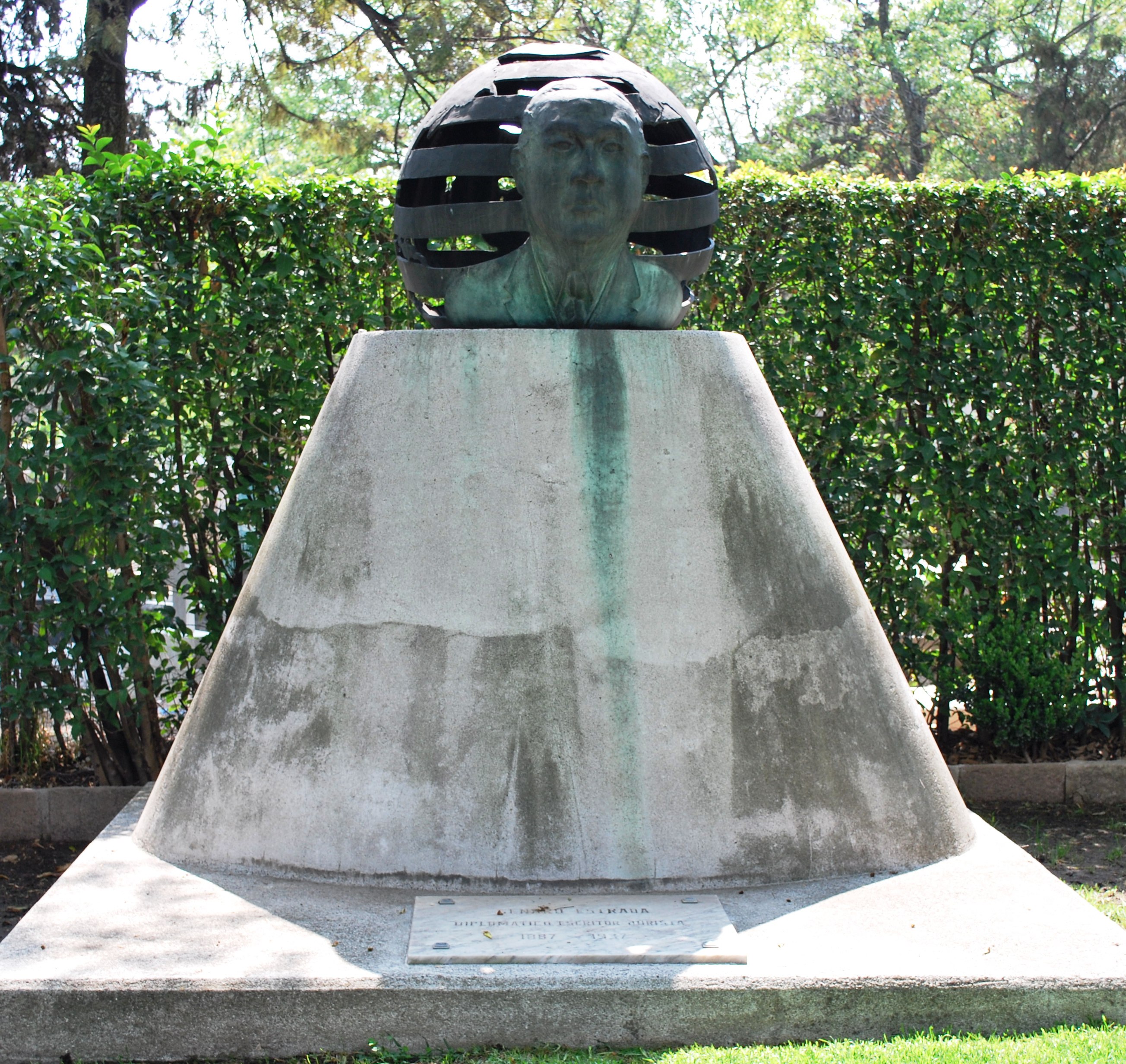Genaro Estrada on:
[Wikipedia]
[Google]
[Amazon]
 Genaro Estrada (June 2, 1887 – September 29, 1937) was a Mexican statesman,
Genaro Estrada (June 2, 1887 – September 29, 1937) was a Mexican statesman,
academic
An academy (Attic Greek: Ἀκαδήμεια; Koine Greek Ἀκαδημία) is an institution of secondary or tertiary higher learning (and generally also research or honorary membership). The name traces back to Plato's school of philosophy, ...
, and writer
A writer is a person who uses written words in different writing styles and techniques to communicate ideas. Writers produce different forms of literary art and creative writing such as novels, short stories, books, poetry, travelogues, p ...
. He was Secretary of Foreign Affairs In many countries, the Ministry of Foreign Affairs is the government department responsible for the state's diplomacy, bilateral, and multilateral relations affairs as well as for providing support for a country's citizens who are abroad. The entit ...
of Mexico between 1930 and 1932 and the architect of the Estrada Doctrine
The Estrada Doctrine is the name of Mexico's core foreign policy ideal from 1930 to the early 2000s, and again since 2018. Its name derives from Genaro Estrada, Secretary of Foreign Affairs during the presidency of Pascual Ortiz Rubio (1930–193 ...
, which stated that the Mexican government would acknowledge any foreign government, no matter how it came into power. This doctrine would influence Mexican politics all throughout the 20th century.
Biography
Estrada was born inMazatlán
Mazatlán () is a city in the Mexican state of Sinaloa. The city serves as the municipal seat for the surrounding '' municipio'', known as the Mazatlán Municipality. It is located at on the Pacific coast, across from the southernmost tip ...
, Sinaloa. He served as a journalist in Mazatlán early in life and moved to Mexico City
Mexico City ( es, link=no, Ciudad de México, ; abbr.: CDMX; Nahuatl: ''Altepetl Mexico'') is the capital city, capital and primate city, largest city of Mexico, and the List of North American cities by population, most populous city in North Amer ...
in 1912, where he was professor at the Escuela Nacional Preparatoria
The Escuela Nacional Preparatoria ( en, National Preparatory High School) (ENP), the oldest senior High School system in Mexico, belonging to the National Autonomous University of Mexico (UNAM), opened its doors on February 1, 1868. It was founded ...
and entered the capital's cultural and political life. He became involved in government after the Mexican Revolution. By the end of the 1920s he served as ambassador to Spain and minister to Portugal and Turkey
Turkey ( tr, Türkiye ), officially the Republic of Türkiye ( tr, Türkiye Cumhuriyeti, links=no ), is a transcontinental country located mainly on the Anatolian Peninsula in Western Asia, with a small portion on the Balkan Peninsula in ...
. He later became professor at the National Autonomous University of Mexico, where he founded the Academia Mexicana de la Historia
The Academia Mexicana de la Historia (''Mexican Academy of History'', also known by the acronym AMH) is a national academy in Mexico, whose purpose is to promote and propagate historical studies within Mexico, conduct research into all aspects of ...
. He also published a novel, ''Pero Galín'' (1926), and four books of satirical and political poetry. He died in Mexico City in 1937.
See also
*Estrada Doctrine
The Estrada Doctrine is the name of Mexico's core foreign policy ideal from 1930 to the early 2000s, and again since 2018. Its name derives from Genaro Estrada, Secretary of Foreign Affairs during the presidency of Pascual Ortiz Rubio (1930–193 ...
References
* {{DEFAULTSORT:Estrada, Genaro 1887 births 1937 deaths National Autonomous University of Mexico faculty 20th-century Mexican historians Mexican male novelists Mexican male poets Writers from Sinaloa People from Mazatlán Ambassadors of Mexico to Portugal Ambassadors of Mexico to Spain Ambassadors of Mexico to Turkey 20th-century Mexican poets 20th-century Mexican male writers